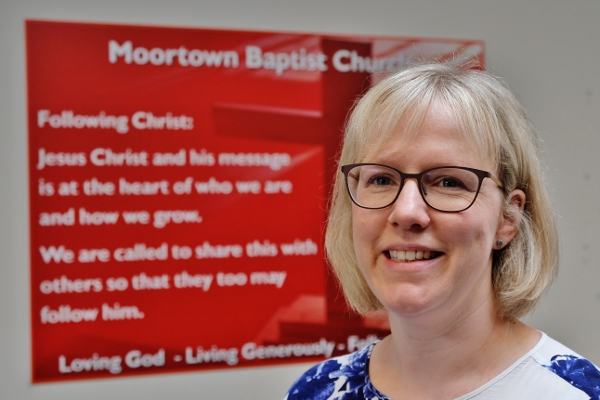 At our recent Church Meeting we shared that with the growth of our Sunday morning congregation we are considering running two morning services. Obviously this entails all of us: ministers and staff, our Leadership Team and of course you our members and attenders looking at many options and practical details ahead of piloting something between October and December.
At our recent Church Meeting we shared that with the growth of our Sunday morning congregation we are considering running two morning services. Obviously this entails all of us: ministers and staff, our Leadership Team and of course you our members and attenders looking at many options and practical details ahead of piloting something between October and December.
The importance of everyone having the opportunity to have their say is why our Leadership Team have prepared some questions for us to consider together in informal groups.
We would like to hear your comments by mid September.
The question form is printed below but paper copies are available from the church office, from our ministers or from any member of our Leadership Team.
———————————————————————–
Moortown Baptist Church is growing in numbers, diversity and experience of God together. With so many people in our building we know that services can feel packed and busy. So we are looking at how we can make more space to grow and flourish whilst cherishing our diversity and community.
The Bible is clear that the church is nothing short of being the body of Christ, the people of God gathering to be equipped and sent, a community experiencing and sharing God through the Spirit.
People have many reasons for coming to church, to find and deepen faith, to enjoy community and friendships, to encounter God and be caught up in hope, to equipped to love daily and be capable of love.
Gathering on a Sunday is only one part of our wider Christian lives.
So we want to hear from one another as we consider doing things differently on Sundays.
Our intention is for these questions to stimulate discussion in small groups of friends, families, home groups, teams that play a part in church life etc virtually or in person, rather than to receive individual responses.
Responses should be sent to moortown.baptist@btconnect.com or handed to a minister or member of the Leadership Team, by Wednesday 12th September.
Some Bible references that might aid your discussion are:
Matthew 28.16-20, Acts 2, Hebrews 10.19-25, 1 Corinthians 12,13,
- Why do we gather? What would we miss if we didn’t?
- Where does a Sunday service fit for you in your faith life: is it the main source of spiritual refreshment, or do you have other places that are the source for you?
- How many Sundays do you attend in a month? What other regular commitments do you have on a Sunday- leading in youth/ children’s church or play not in the band, stewarding. Or maybe commitments to work or children’s sport that happen on Sunday?
- How would you describe Sunday morning services to a prospective visitor with particular reference to our welcome, worship, engagement with the Bible, and witness?
- What kind of ideas would a visitor go away with about the kind of God we worship, our attitude to the wider world, what it means to be part of a church community?
- For you and yours what do you value most in Sunday gathering that prepares you for your coming week?
- As we seek to grow, what kind of welcome and invitation to join in at MBC do you experience or imagine new people experience, (especially if they’ve never been part of church)
- What do you see other churches doing well?
- If there were an earlier and a later morning service, what would you expect to be included in each service?
- What might we need to consider if we run two morning services.
MBC Co-Ministers and Leadership Team , July 2018
 It is with great sadness that we learn of the death of Norman Hiley. Norman who was 91 passed away on Tuesday August 7th.
It is with great sadness that we learn of the death of Norman Hiley. Norman who was 91 passed away on Tuesday August 7th.
















































